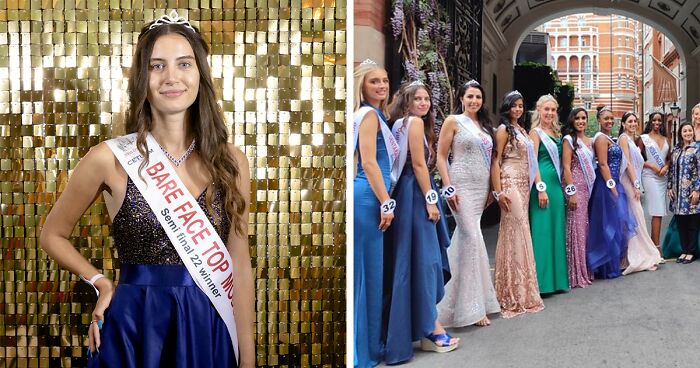
Miss England Finalist Competes Makeup-Free, Stirs Up Debate On Beauty Standards Online
I dream of beauty. I dream of grace. I dream of being from outer space. Dream a little dream. Bring a little faith. All in the aim to make it all seem great. Daydreams of beauty. Imaginations of such. The plague that we can’t seem to rid ourselves of. We dance and we sing to the beat of a drum that keeps beating and scraping and cutting us up.
The amount of times I wasn’t good enough. The amount of times I tried to be. The image of the ‘perfect woman’ well engraved in my mind way before I was even capable of comprehending it. Alas, I am far from that woman. And I may never be it. But finding acceptance is something many of us must deal with.
Acceptance that we won’t be the world’s or the nation’s most beautiful woman. A part of the elite group, televised and glorified for all to see. Slender, tall, with lovely smiles adorning their symmetrical features. However, one such contestant wanted to bring us back closer to reality by participating in the contest sans makeup.
The first in the Miss England Contest’s 94 years. Hailed as revolutionary. Brave. Legendary. But is it really such? Or is it shallow in the sense of demonizing makeup, when she herself is blessed with perfect good looks? A debate ensues. So let’s look a little closer.
More info: Melisa’s Instagram | Miss England Contest
Politics student Melisa Raouf will be remembered as the first Miss England contestant to compete without makeup in the contest’s 94-year history
Image credits: Kam Murali / SWNS
Politics student Melisa Raouf will be remembered as the first Miss England contestant to compete without makeup in the contest’s 94-year history. She decided to go makeup-free in the hopes of inspiring other women to embrace their natural beauty. The 20-year-old not only broke contest stereotypes but also won a spot in the Miss England final.
Melisa, from south London, will now compete alongside 40 other women for the title, which will be announced on October 17. She plans to compete “bare-faced” once again. Speaking about the contest with Tyla, Melisa said: “It was quite a daunting experience but so amazing to win this way.”
“It means a lot to me as I feel many girls of different ages wear makeup because they feel pressured to do so. If one is happy in their own skin we should not be made to cover up our face with makeup,” she continued. “Our flaws make us who we are and that’s what makes every individual unique. I think people should love and embrace their flaws and blemishes, as we know real beauty lies within simplicity.”
She decided to go makeup-free in the hopes of inspiring other women to embrace their natural beauty
Image credits: Kam Murali / SWNS
The young woman went on to explain that wearing makeup made her feel uncomfortable and hidden. “I never felt I met beauty standards,” she added. “I have recently accepted that I am beautiful in my own skin and that’s why I decided to compete with no makeup. I still feel confident in myself, with makeup I’m all concealed. This is who I am, I’m not afraid to share who I am. I wanted to show who Melisa truly is.”
“I would love to use my Miss England platform to empower natural beauty and eliminate this toxic mindset,” Melisa stated. “With mental health being such a big topic, I want to make all girls feel good. I just want to remove all the beauty standards. I feel like all girls are beautiful in their own way.”
This is where we hit an interesting conundrum, but the main question here is: why do people of all ages choose to wear makeup? Melisa’s point of view seems to solely be based on the population with insecurities, those who see makeup as a form of hiding their imperfections, as well as those wanting to achieve a very ‘artificial’ beauty, commonly seen on the front pages of magazines and on television.
However, it’s difficult to wholeheartedly agree with her, especially as a woman myself who has been made fun of for not fitting in with the ‘perfect.’ I always believed that natural beauty was superior to those who decided to cake their faces in makeup. But as I’ve grown and matured, I now realize how much we tend to stigmatize the ‘other.’ The ‘other’ to us.
The 20-year-old not only broke contest stereotypes but also won a spot in the Miss England final, in which she will be competing without beauty products once again
Image credits: Kam Murali / SWNS
Truthfully, whether you use makeup to feel beautiful in your skin, whether you use it to develop your artistry, whether you use it to explore all the textures and glitters and pretty colors, or whether you just like it, it doesn’t make you superior or inferior to a person who chooses not to wear any, and vice versa.
As stated on Fait avec Coeur, when we demonize makeup, we deny people the experience of enjoying makeup shamelessly. There is a common narrative within the health and wellness industry that wearing makeup is ‘bad.’ It’s now trendy to opt for the fully ‘natural look’ or to shun makeup altogether. We should all be able to choose without negative judgment or a hierarchy of which is ‘better.’ Empowerment is about allowing choices.
The message in this story is sweet yet outdated, and also somewhat falling flat. In this anti-aging world, is the person who represents natural beauty really a 20-year-old with perfect skin and undeniably beautiful facial features? Now that’s a question worthy of a debate. But I think it falls into the question of why beauty pageants are still a thing?
“It was quite a daunting experience but so amazing to win this way,” Melisa said. “I feel many girls of different ages wear makeup because they feel pressured to do so”
Image credits: Kam Murali / SWNS
The notion of the beauty pageant has both been praised and critiqued throughout its history. Although its roots lie deep within ancient Greece, the familiar version came to be in the 1850s. As explained by the PBS, beauty pageants around the world are primarily about putting idealized versions of femininity on a competitive stage and awarding a ‘royal’ title and crown to the winner, but they are also about using femininity to represent other issues.
Historians Colleen Ballerino Cohen and Richard Wilk agree that “Whether the title is for Miss Universe or the Crooked Tree Cashew Queen, these contests showcase values, concepts, and behavior that exist at the center of a group’s sense of itself and exhibit values of morality, gender, and place.” The sole woman becomes a symbol of national identity, group values, and pride.
However, others argue that the standards of beauty in pageants do not represent all women, with the contestants being generally tall, thin, and light-skinned, resembling traditional standards of Western beauty. While beauty pageants may seem like a wonderful opportunity for women to raise money, gain confidence, find an enjoyable hobby, and better themselves, others find that pageants waste money and turn women into sexual objects, showcasing beauty first and talent and personality second.
Beauty pageants have been praised and critiqued, yet natural beauty and makeup-enhanced beauty have one thing in common – it’s all just skin-deep
Image credits: missenglandofficial
Natural beauty and enhanced beauty have one thing in common – it’s all just skin-deep. Regardless of what your preference in human aesthetics is, I’m a firm believer of ‘what’s inside that counts.’ I’m also a believer in makeup; whether you want to look better for yourself, express yourself, or it’s a routine that brings a smile to your face, makeup is in no way the new evil.
If these so-called beauty contests are to continue well into the future, I’d like to see our shifting understanding of beauty shift alongside the models chosen to participate in these contests, because these only exist to perpetuate long-standing stereotypes of outward acceptance.
At the moment, the best they can do is to add a ‘bare-face model’ category. Miss England organizer Angie Beasley spoke about the decision to launch the new format with CNN, saying: “It encourages contestants to show us who they really are without the need to hide behind makeup and filters on social media.”
“This round in the contest was introduced back in 2019 as we were receiving so many entry images from contestants covering their faces with thick makeup and using filters,” she explained. “Since then contestants post their images on social media to enter this round. This is the first time I’ve seen a contestant completely makeup free competing in a semi-final and she said she felt empowered against all the other contestants.”
She concluded by saying, “I’m all for makeup to enhance your natural beauty but there’s no need for youngsters to wear it so thick that it looks like a mask.” Talk about gatekeeping much…
The Miss England final is scheduled for October 16-17. We wish Melisa and the other contestants all the best!
Image credits: Kam Murali / SWNS
This will remain a debate for years to come, I suppose, as beauty standards are about a bit more than aesthetics and preference alone. Until we learn to accept one another for the people we feel comfortable being, I doubt we’ll come to a consensus.
Let us know your thoughts in the comments below – do you prefer the ‘natural beauty’ movement or are you an avid makeup user? Don’t forget to upvote and follow for more multifaceted content! Have a good one, xoxo
Although the message is positively-inclined, it has stirred up a debate online on beauty and the demonization of makeup. Let us know your thoughts in the comments!
176Kviews
Share on FacebookExplore more of these tags
I think the key thing here is to let makeup and general appearance alterations be a choice, dont let people influence your decision either way, she chooses not to wear makeup, other people choose to wear makeup and its all good because its their look
YES!! Thank you! I couldn't have said it better myself. Let's look at it this way, cause I love this analogy, Christmas lights (make up) are pretty and roses (natural beauty/ without makeup) are also pretty. They don't have to look the same to both be seen as beautiful!
Load More Replies...Hey, speak for yourself 🤣🤣 Honestly though, she could win that
Load More Replies...I wish more ladies would "dare to bare" but I totally understand the anxiety around it. I myself have vitiligo and struggled but now I would rather go make up free than possibly cause long term damage to my skin. But that's my choice, each women should do what they feel comfortable with!
I think the key thing here is to let makeup and general appearance alterations be a choice, dont let people influence your decision either way, she chooses not to wear makeup, other people choose to wear makeup and its all good because its their look
YES!! Thank you! I couldn't have said it better myself. Let's look at it this way, cause I love this analogy, Christmas lights (make up) are pretty and roses (natural beauty/ without makeup) are also pretty. They don't have to look the same to both be seen as beautiful!
Load More Replies...Hey, speak for yourself 🤣🤣 Honestly though, she could win that
Load More Replies...I wish more ladies would "dare to bare" but I totally understand the anxiety around it. I myself have vitiligo and struggled but now I would rather go make up free than possibly cause long term damage to my skin. But that's my choice, each women should do what they feel comfortable with!

 Dark Mode
Dark Mode 

 No fees, cancel anytime
No fees, cancel anytime 


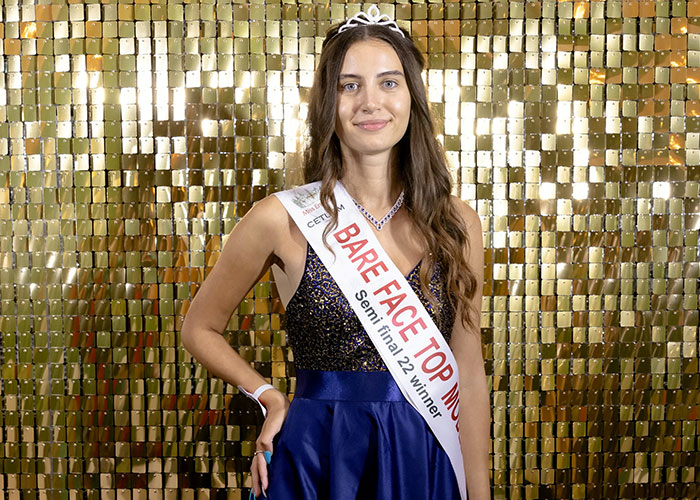
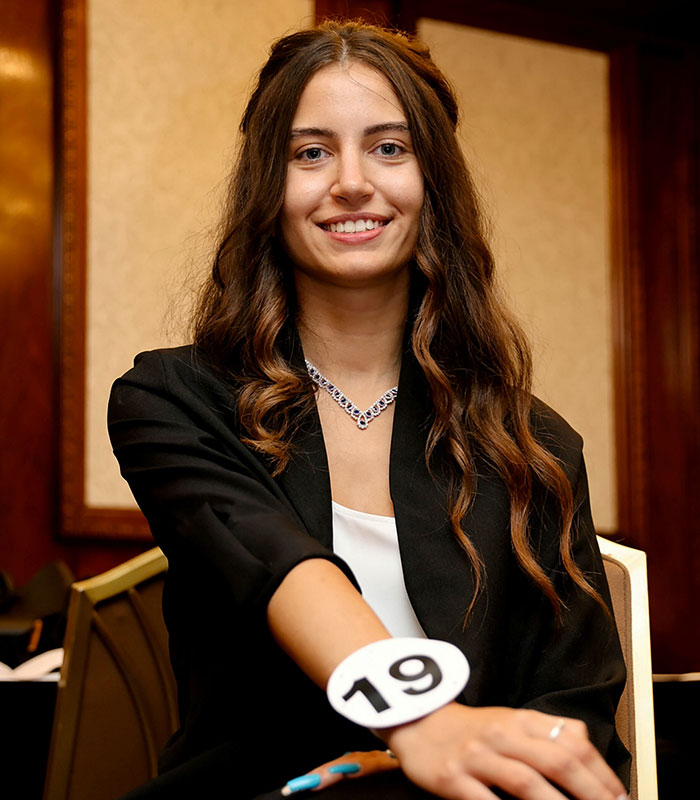
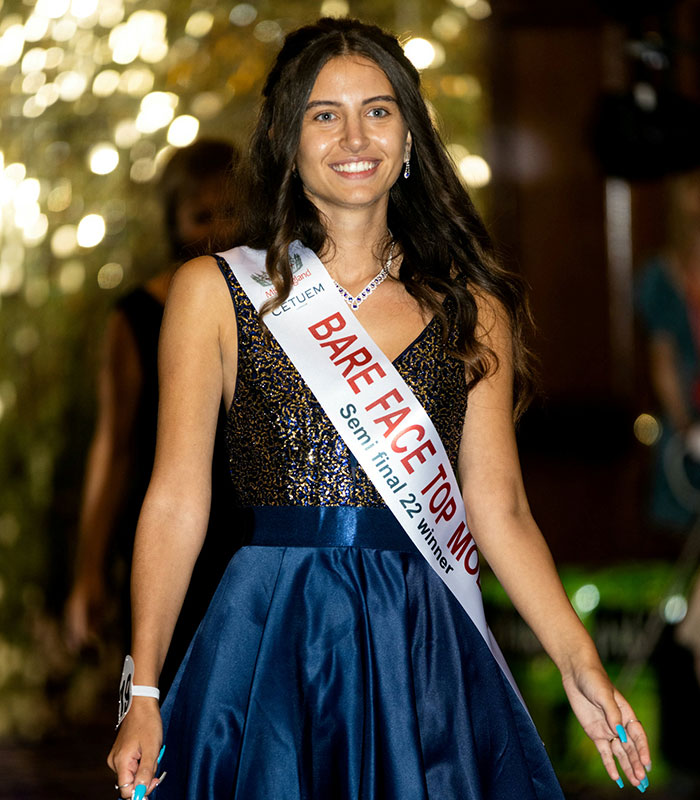
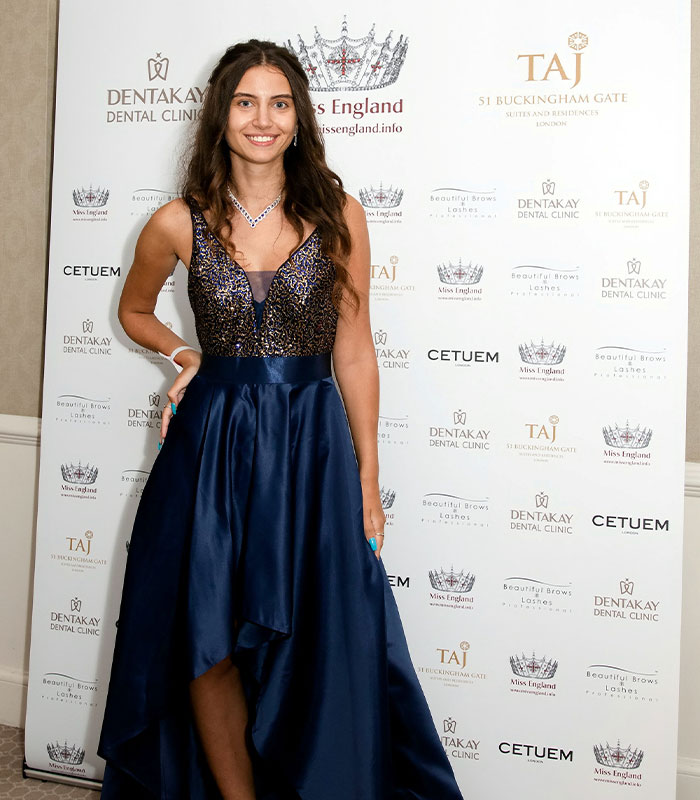

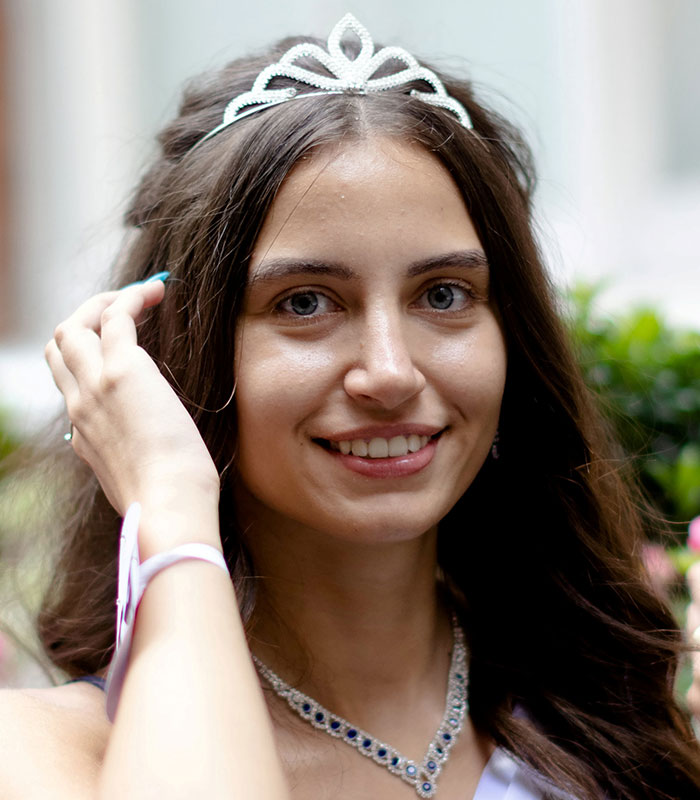



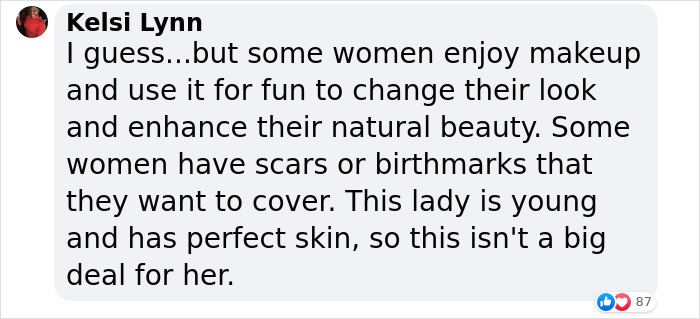





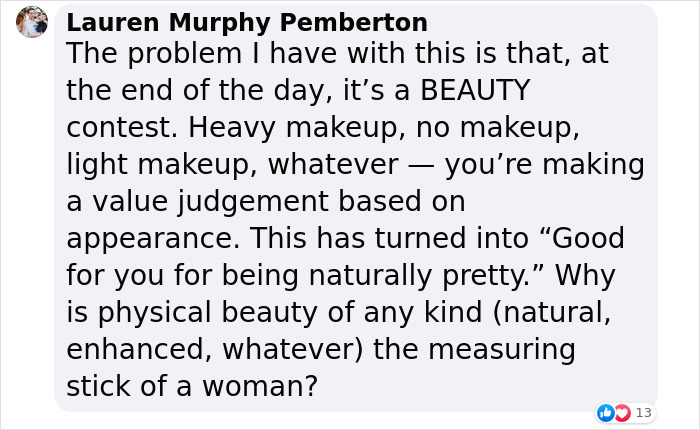

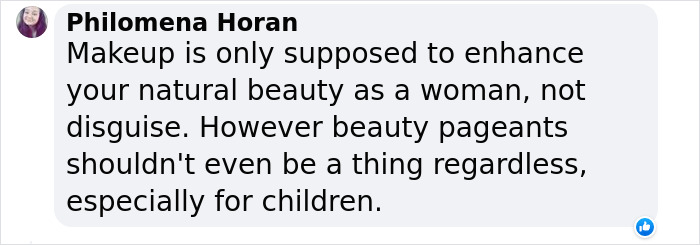













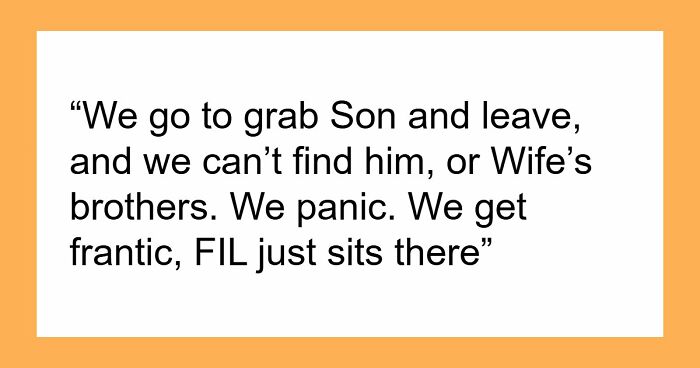
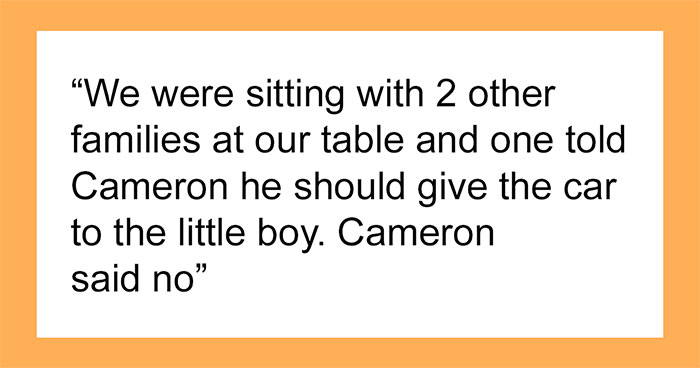

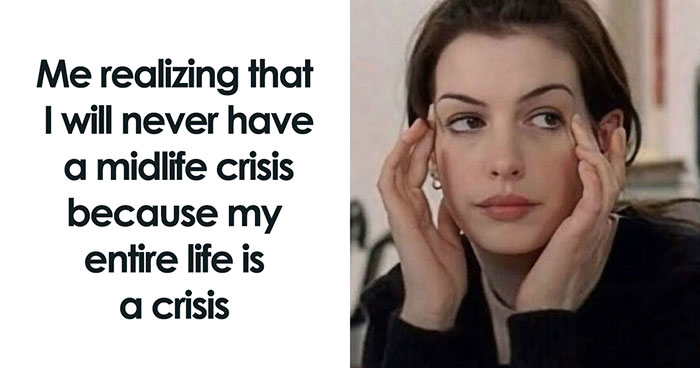














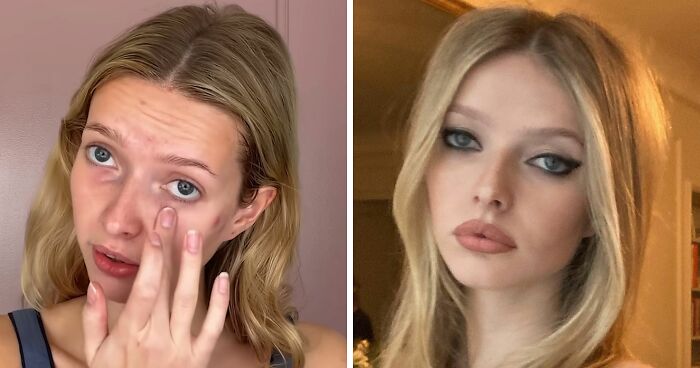



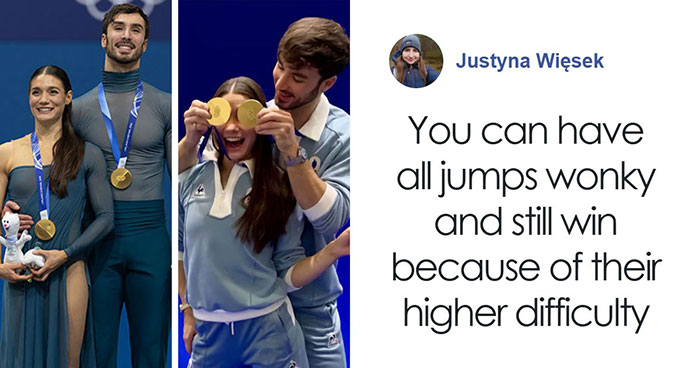



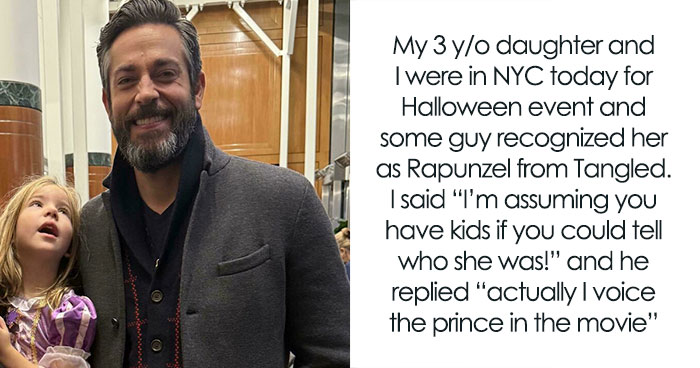
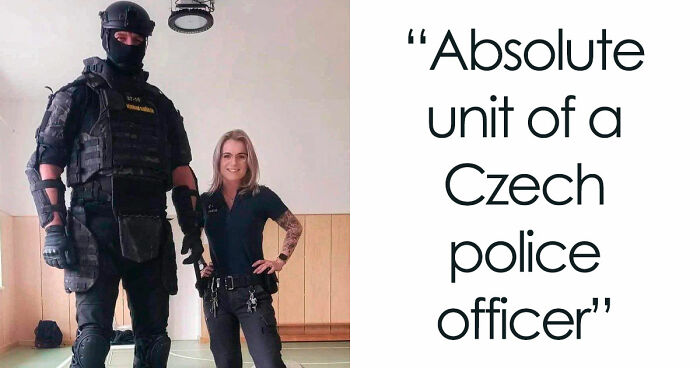

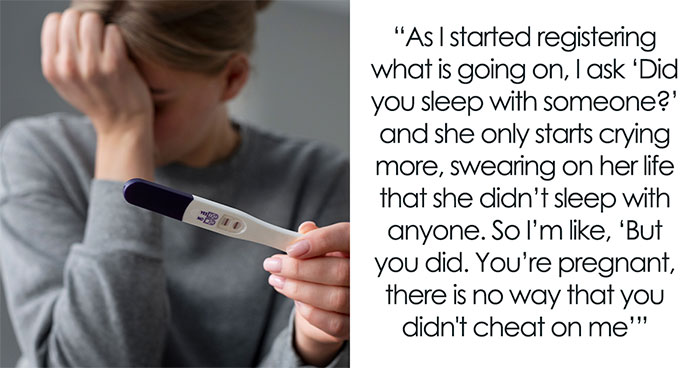



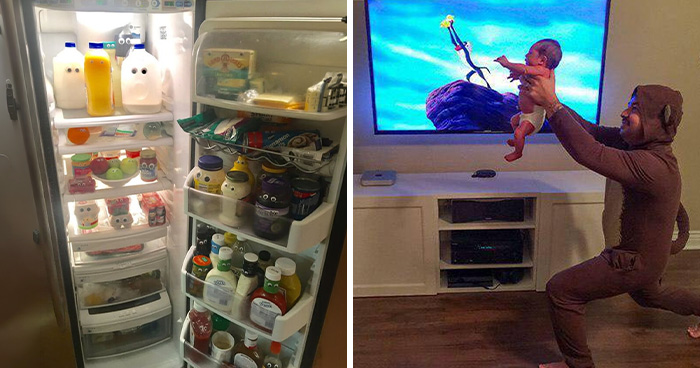
153
72